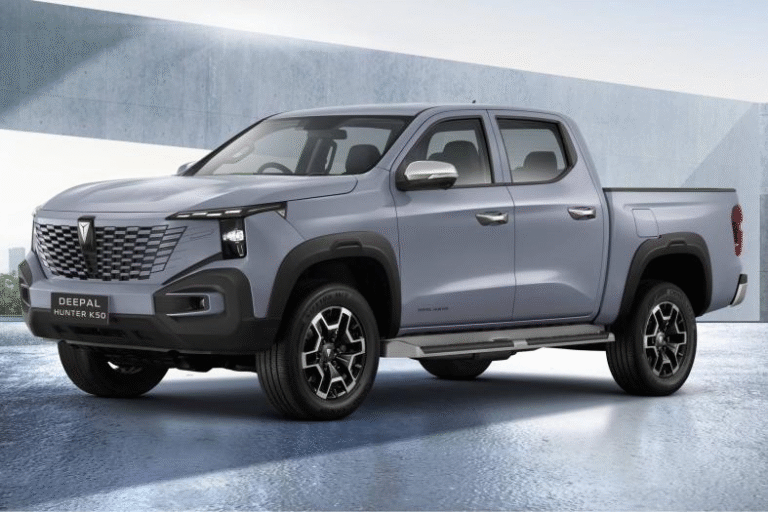ICMA Warns of Long-Term Risks in Used Vehicle Imports
The Research and Publications Department of the Institute of Cost and Management Accountants of Pakistan (ICMA) has pointed out that the initial 40 percent regulatory duty on commercial import of used vehicles raises deeper concerns regarding Pakistan’s foreign exchange reserves, balance of payments, and the long-term resilience of the local automotive ecosystem.
ICMA released a timely analysis of the government’s September 24 decision, followed by SRO 1895 issued on September 30, which permits the commercial import of used vehicles up to five years old under a phased reduction in regulatory duties.
ICMA says that while the ECC decision and subsequent SRO may provide short-term relief to consumers and boost government revenue, it presents significant long-term challenges for local assemblers, the spare parts sector, and Pakistan’s macroeconomic stability. A carefully balanced policy approach will be critical — one that protects external accounts, supports industry modernization, and ensures that consumers gain real and lasting benefits.
According to ICMA, the policy may bring short-term fiscal gains through the initial 40 percent regulatory duty and provide consumers with greater choice but it raises deeper concerns regarding Pakistan’s foreign exchange reserves, balance of payments, and the long-term resilience of the local automotive ecosystem.ECC Allows Commercial Import of Used Vehicles
For decades, it says that Pakistan’s auto sector has been shielded by high tariffs and regulatory barriers to allow local assemblers to dominate with limited accountability to consumers. Previous liberalization attempts in the 2000s provided temporary relief but also triggered industry pushback while showing how sensitive the market is to policy shifts.
The ECC 2025 decision is therefore a major turning point, one that could reshape the industry, consumer behavior, and Pakistan’s trade flows,” ICMA said adding that in the immediate term, vehicle prices are unlikely to decline meaningfully.
The 40 percent duty, coupled with exchange rate volatility and importer premiums, will keep landed costs elevated. Yet, consumer expectations are already shifting.
Many buyers are expected to delay purchases in anticipation of more affordable, better-quality imports. Imported cars, which often include advanced safety and efficiency features such as airbags, ABS, hybrid engines, and superior fuel economy, will raise the standard of comparison and compel local manufacturers to enhance their offerings.
As duties decline by 10 percent each year, imported vehicles will steadily become more competitive. By FY2027–28, when duties fall to 20 percent, affordability will improve, especially for middle-class households.
This will broaden consumer choice, particularly in the small and mid-sized passenger car segment, which dominates Pakistan’s market. Popular Japanese models such as Toyota Vitz, Honda Fit, and Suzuki Swift are expected to directly challenge domestic equivalents. This competition will force assemblers to modernize production lines, improve safety standards, and introduce more fuel-efficient technologies.
By FY2029–30, when duties are fully phased out, the domestic market will face global-level competition. Assemblers that fail to adapt risk losing market share or exiting, which could trigger industry consolidation.
However, ICMA notes that liberalization also creates opportunities: stronger players that invest in technology, international partnerships, hybrid or electric vehicles, and quality upgrades could emerge more competitive, integrated into global value chains, and better positioned for the future.
Importantly, consumer behavior is also expected to change. With more options, buyers are likely to shift away from an over-reliance on resale value — long a dominant factor in Pakistan’s restricted market — toward prioritizing quality, safety, and efficiency.
The ripple effects extend beyond assemblers. Pakistan’s auto sector supports a large network of vendors and SMEs supplying parts such as seats, batteries, tires, and engines. A decline in local production would put these suppliers under strain, with many struggling to survive. However, vendors that adapt — by aligning with international supply chains, diversifying into aftermarket support, or investing in EV and hybrid parts — could discover new opportunities. Employment is also at stake. While thousands of jobs in assembly plants and vendor networks may be affected, new opportunities may arise in certification, inspection, logistics, and after-sales services tied to imports.
Industry stakeholders, particularly the Pakistan Automotive Manufacturers Association (PAMA), have expressed reservations. In their feedback to ICMA’s Research and Publications Department, they cautioned that without adequate domestic testing infrastructure and a transparent customs valuation system, imported used vehicles could undermine local CKD operations.
They also highlighted the risk that many of these vehicles lack proper after-sales service and spare parts support, which could eventually result in the accumulation of unserviceable or junked cars. These risks underscore the importance of effective enforcement, reliable inspection systems, and strategic support for local manufacturers to safeguard industry stability while embracing phased liberalization.
Despite the promise of wider choice and gradual affordability, ICMA notes that the policy will not immediately benefit lower-income households, as affordability barriers remain high even with reduced duties. Meanwhile, rising import volumes may increase pressure on foreign exchange reserves and the balance of payments over the medium term, offsetting some of the fiscal gains for the government.



